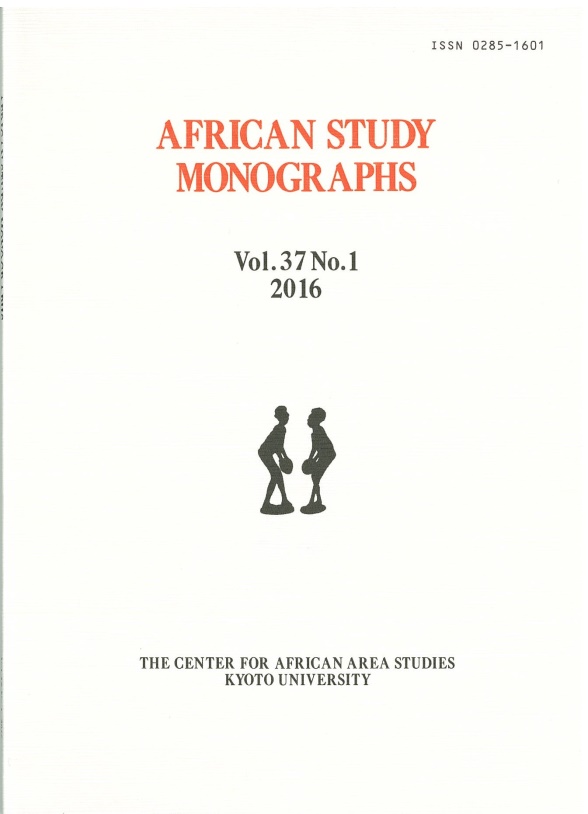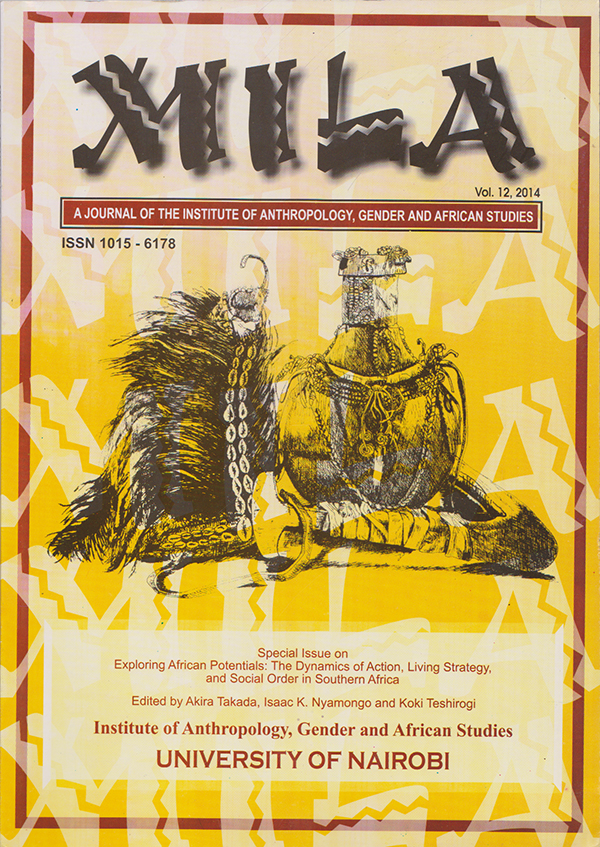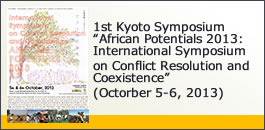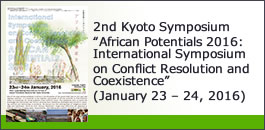Date: May 11, 2013. 15:00-17:00
Venue: Inamori Foundation Memorial Bldg, Middle-sized Meeting Room, Kyoto
Program
15:00-15:40
Fukui Miho (Ochanomizu University)
Research on Gender-based Violence (GBV) in the Post-conflict Phase:
Integrating Human Security in its Response
15:40-16:20
Hisada Shinichiro (Kyoto University)
Applying P3DM for Clarification of Multifactor Relationship of Land Disputes
:A Case Study of Highland Agrarian Ali in Southwestern Ethiopia
16:20-17:00
Ideue Kazuyo (Kobe University)
A Study of Capital Market and Corporate Finance in Africa: An Analysis of the Capital Accumulation Process of Sugar Industry and the Capital Transfer in Mauritian Industrialization
Summary
Research on Gender-based Violence (GBV) in the Post-conflict Phase:
Integrating Human Security in its Response
Fukui Miho (Ochanomizu University)
This research specifically deals with Gender-based violence(GBV) committed by members of the international society, including UN and NGOs, to its beneficiaries in a post-conflict phase and searches for a better response mechanism which involves prevention, punishment (both legal and administrative) and victim support. The main aim is to integrate human security to its response at an organizational level and promote a victim centred approach. A field research based on interviews and monitoring of the programme in Sierra Lone and Liberia brought some findings on the GBV response lead by the government and UN. In Sierra Leone, the GBV victim support program still faces the same challenge which they faced in the post-conflict phase, but the National Committee against GBV which inherited a very clear anti-GBV message from the international society succeeds on promotion of lowering the rate of female genital mutilation/cutting (FGM/C). In Liberia, UN lead GBV response shows a new form of response mechanism. By ensuring a victim support from the post-conflict phase, African “potential” for human security even in the following development phase would be explored. This is an attempt to secure a support to all victims regardless of the legal status of a perpetrator and the organization which a perpetrator belongs to.
Applying P3DM for Clarification of Multifactor Relationship of Land Disputes:
A Case Study of Highland Agrarian Ali in Southwestern Ethiopia
Hisada Shinichiro (Kyoto University)
A Study of Capital Market and Corporate Finance in Africa: An Analysis of the Capital Accumulation Process of Sugar Industry and the Capital Transfer in Mauritian Industrialization
Ideue Kazuyo (Kobe University)
Until independence in 1968, Mauritius was a British crown colony. Prior to its capture by Britain in 1810, the island belonged to France and Holland. At the time of independence, the Mauritian industrial structure depended almost exclusively on sugar export and the sugar industry was the backbone of the country. However, the country was face with a high level of population growth rate and serious deterioration on its fiscal conditions. Following these reasons, the economic diversify was required
After the introduction of the establishment an export processing zone (EPZ) in 1970, Mauritius was called “Mauritian Miracle” in terms of success of export-oriented industrialization which led to high economic growth among African countries.
The colonial rule and the existence of foreign capital certainly impacted the population characteristic and economic structure, and also it is assumed that the sugar industry which inherited from the colonization of French period impacted the formation of Mauritian economic development. Therefore, sufficient accumulation of sugar industry also would be the source of investment in the development of the Mauritius EPZ.
The purpose of this study is to investigate such assumption by analyzing the evolution of sugar industry and the connection with EPZ sector and financial sector. Besides the based on the above result, the way of financial system which is not only for corporate finance for growth but also for inclusive development are discussed in considering the development of capital market in Africa where the ownership structure of companies are mostly concentrated.


 Exploring African Potentials, Mila Special Issue
Exploring African Potentials, Mila Special Issue
